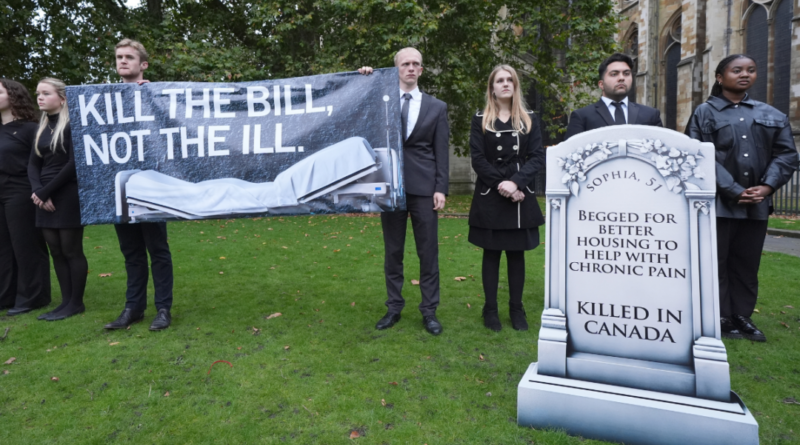Canada’s Euthanasia Laws Under Scrutiny as UK Considers Legalizing Assisted Suicide
Canada’s assisted death policies have been in the spotlight in the UK as MPs there have been mulling legalizing euthanasia in recent weeks. Some raised concerns about a “slippery slope” effect that could result in the law becoming less stringent over time.
Canada’s experience was cited as an example of laws becoming increasingly more permissive following the legalization of euthanasia.
Terminally Ill Adults (End of Life) Bill
, bringing the country a step closer to legalizing assisted dying for adults who have six months or less to live. The vote result was 330 in favour and 275 against. MPs were given a free vote, allowing them to cast their ballots according to their conscience rather than toeing the party line.
The End of Life bill has successfully cleared its first hurdle, but must pass another five steps to become law. That process could take up to two years and requires further rounds of voting.
Canada’s medical assistance in dying (MAID) legislation as a whole received considerable scrutiny in the lead-up to the vote, becoming a talking point in UK parliamentary debate and by the country’s media.
One of the main criticisms was the way Canada’s legislation has evolved over time.
When MAID was initially introduced in Canada in 2016, it was strictly for the terminally ill, much like the UK’s current bill.
Since legalization in 2016, nearly 45,000 Canadians have been euthanized.
In 2022, assisted deaths accounted for 4.1 percent of all deaths in Canada, representing a growth of 31 percent over 2021.
described
MAID as a system put in place to support the “autonomy and freedom of choice of individuals.”
Concerns About Canada’s Experience
Critics of the UK’s End of Life bill have cited Canada’s MAID system as an example of how such legislation can be amended to be more permissive over time.
That is the concern of Baroness Tanni Grey-Thompson, a British Paralympic athlete with 11 gold medals.
told
Sky News.
“I’m really worried that disabled people, because of the cost of health and social care, because that’s being removed, that choice is then taken away so the only choice they have is to end their lives,” she said.





